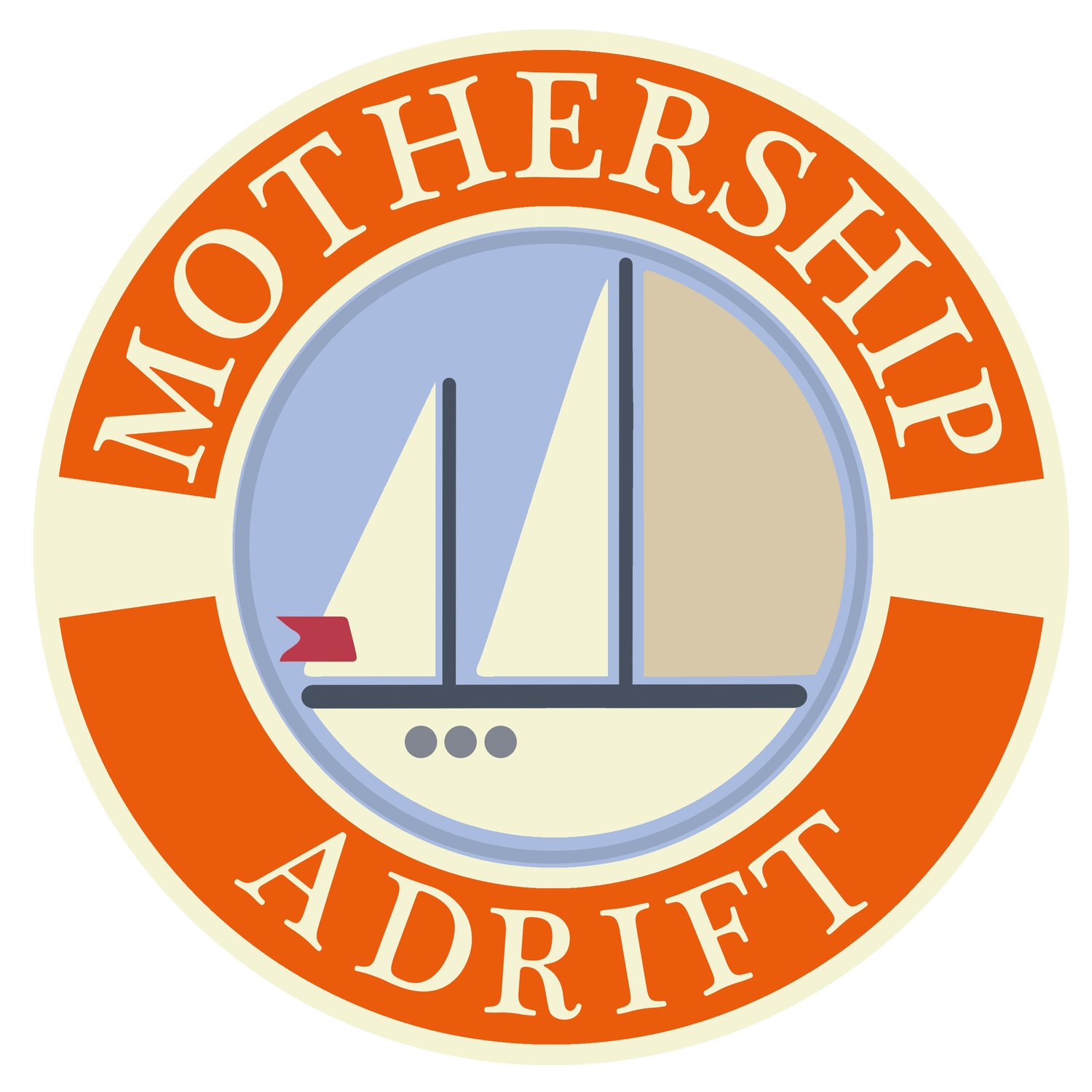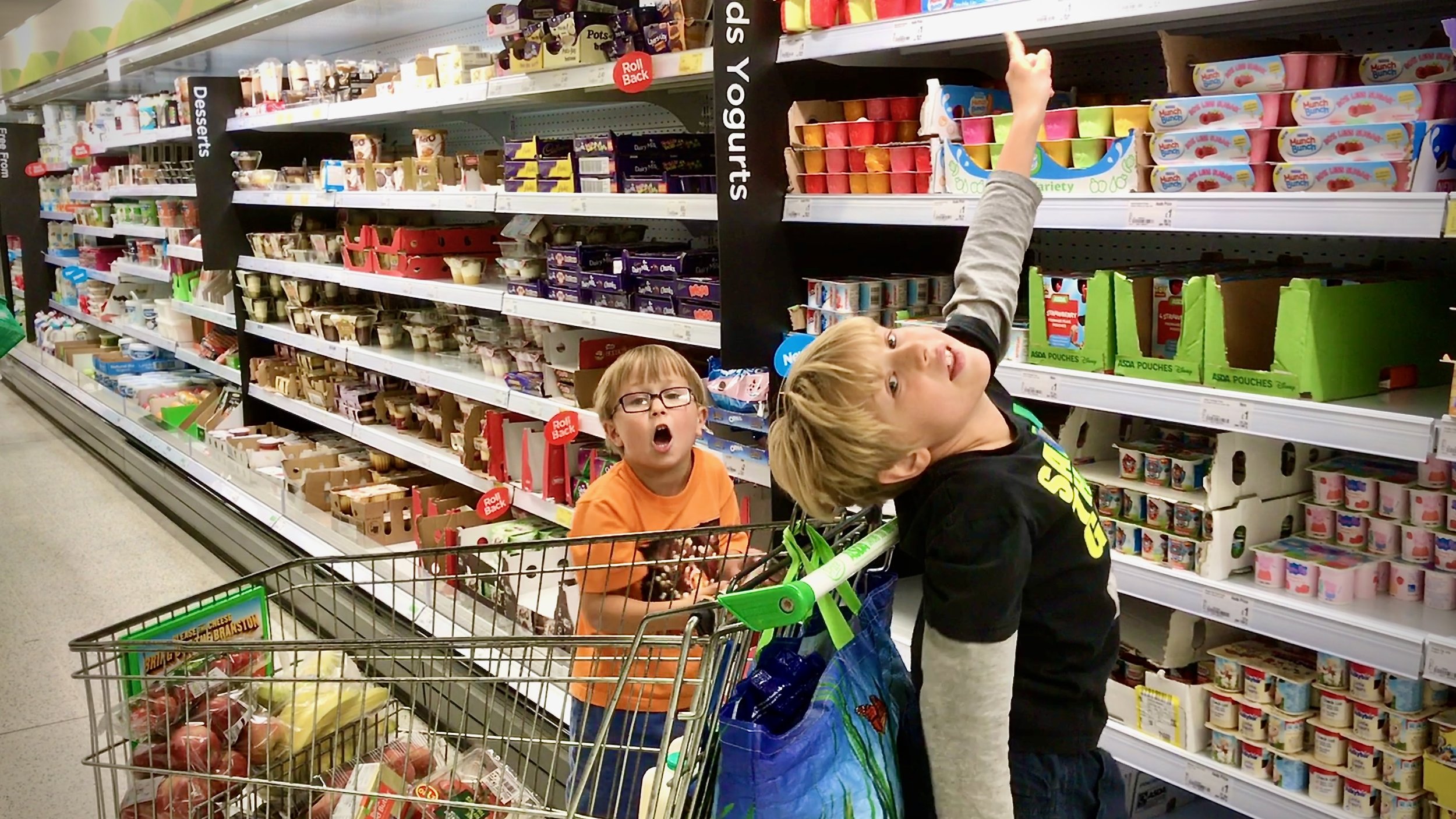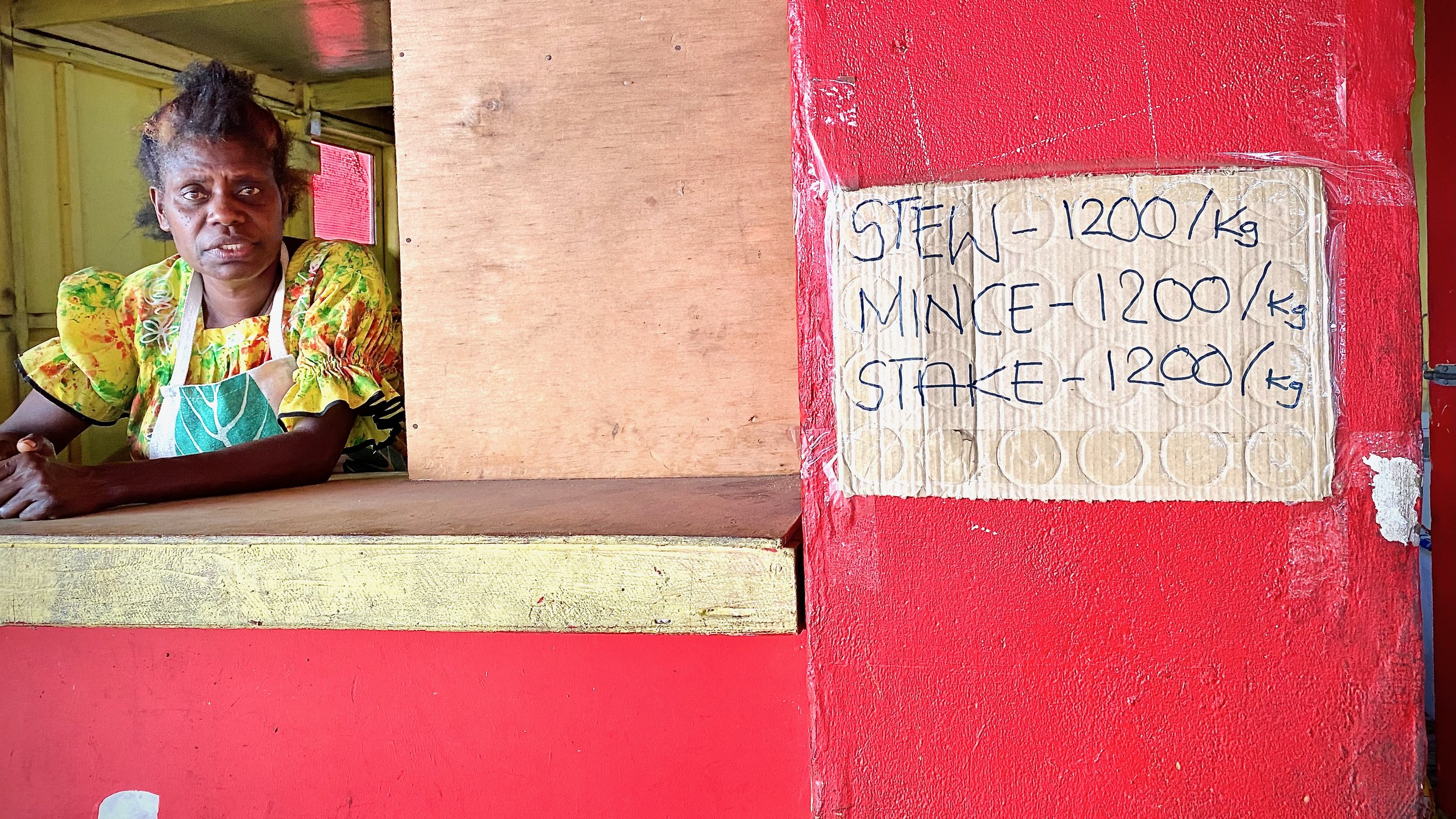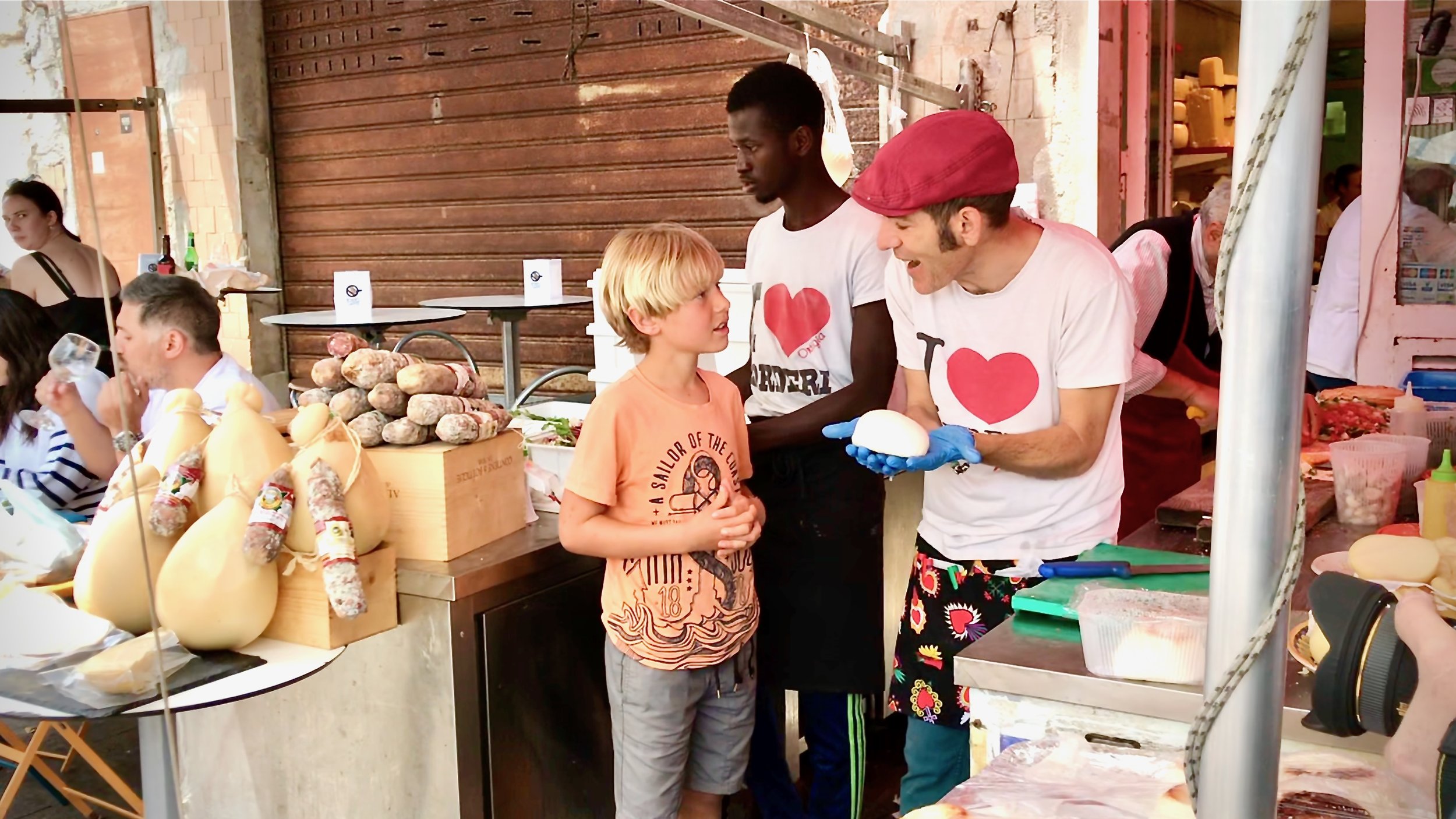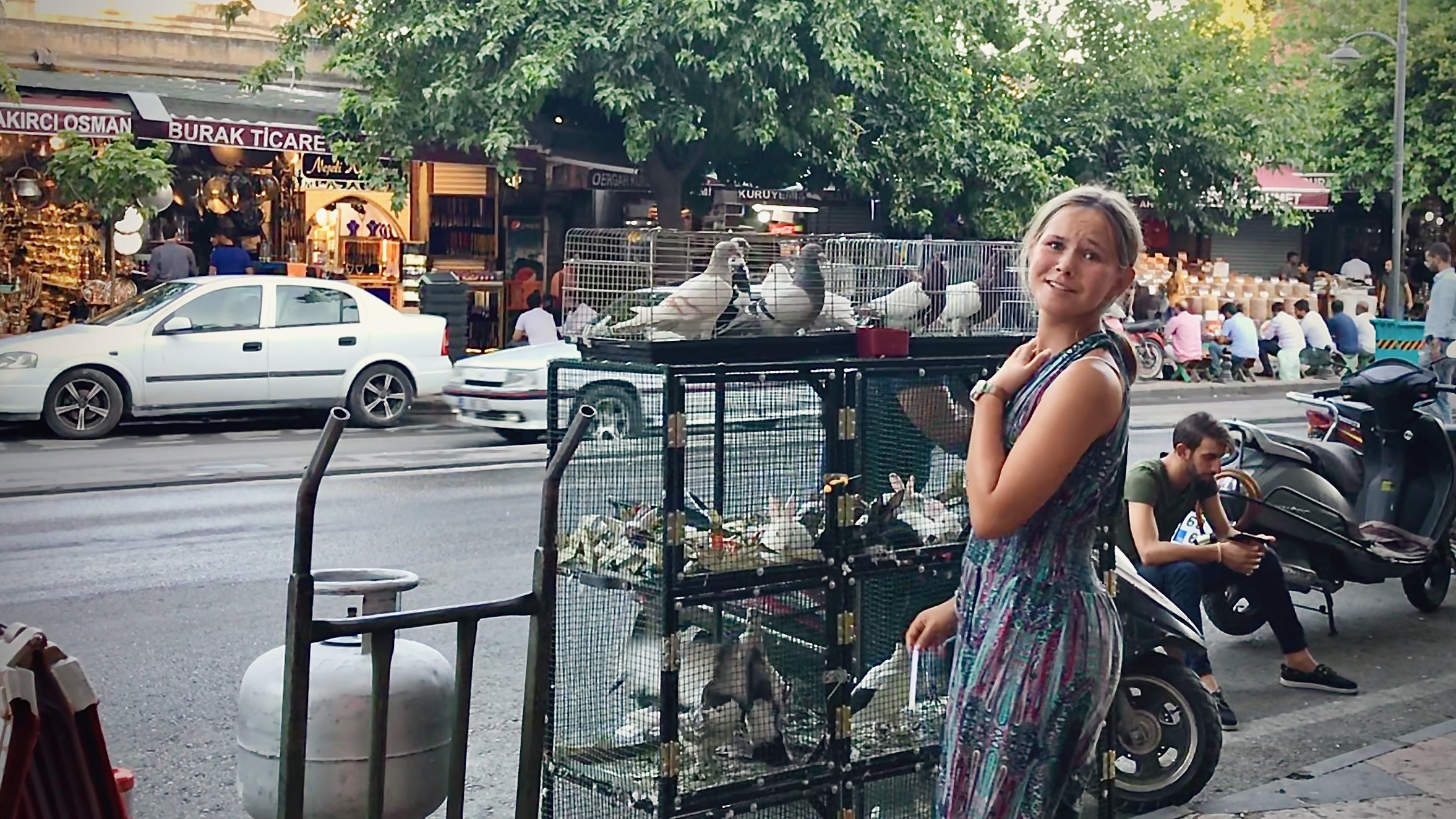Provisioning a Sailboat Around the World
01-04-08
“It is not the ship so much as the skilful provisioning that assures a prosperous voyage”
A Bajo woman with coconut oil sun protection, selling cakes at a market in Wakatobi, Indonesia
Langkawi and the Great British Sausage Tragedy
Kuah, Langkawi, is the kind of place where the highlight of your week is finding frozen British pork sausages.
Mothership was anchored just offshore while Irenka flew to Kuala Lumpur with Darry, our 15-year-old at the time, so he could sit his IGCSE exams. That left Yewan and me bobbing off Kuah, the island’s main town, for three whole weeks. I’m not saying the place isn’t thrilling, but according to TripAdvisor, the top three things to do there are:
Visit a forest (which is... out of town).
Visit a sanctuary for injured and traumatised dogs and cats.
Visit a temple (also out of town).
So imagine our joy when we stumbled across Lavish, an expat shop selling frozen Wicks Manor British sausages, bacon, and other pork-based foods. A rare treasure in a predominantly Muslim country, 10,000 kilometres from the nearest greasy spoon. Despite the eye-watering price tag, we stocked up, filling the backpack like it was Covid all over again. But by the time we got back to the shoreline, the tide had gone out and the dinghy was firmly glued in the boot-sucking, stinks-like-a-dead-cow river mud.
Imagine our joy when we stumbled across an expat shop selling frozen Wicks Manor British sausages, bacon, and other pork-based foods. Kuah, Langkawi
We spent over an hour dragging ourselves through thick, reeking goo, finally reaching the boat covered in filth, sweat, and holding a month’s supply of (by now) fully defrosted pork products.
What followed was a week-long culinary tour of British classics: bangers and mash, toad in the hole, sausage and bacon butties, pork chops, sausage stew, pigs in blankets. And as much as we love our British food (and we truly do), it turns out even the most patriotic taste buds draw the line at eating nothing but processed pig every damn day.
And that, really, is provisioning on a boat in a nutshell. Feast or famine. One minute you’re knee-deep in mud clutching a full sack of premium pork in Malaysia, the next you’re trying to trade a fishing lure for the last half-rotten tomato with a recalcitrant market vendor in Suriname.
It’s unpredictable, inconvenient, occasionally disgusting, and completely central to life on a cruising boat.
One minute you’re knee-deep in mud clutching a full sack of premium pork the next you’re trying to trade a fishing lure for the last half-rotten tomato. Suriname.
Provisioning Roulette: A Game of Chance
Even if you’re doing your best to stay miles from civilisation, sooner or later, you have to provision the boat. Once you’ve cleared into a foreign port, the next priority, and before you've even figured out the currency, is usually restocking the galley.
If you thought clearing customs was painful, try navigating open-air markets with their blood-slicked tables, exotic foodstuffs, and where ripping off foreigners sometimes feels like a national sport.
Yes, provisioning is a massive part of cruising life. Whether you’re offshore, coastal hopping, or swinging at anchor, your meals will vary wildly depending on where you are, what’s available, and how desperate you are.
Once you’ve cleared into a foreign port, the next priority, and before you've even figured out the currency, is usually restocking the galley. North Sudan
The Perfect Provisioning Plan (and Other Spreadsheet Lies)
Under normal circumstances, a menu plan is a solid starting point. There are more boat-friendly cookbooks and food blogs than you could ever read. Spreadsheet nerds can break down provisions to the last teaspoon of paprika. In that dream scenario, you tie up at a marina, stroll to a nearby supermarket, and return fully stocked in time for lunch. If you find yourself in that fortunate position, take full advantage of it. Because when you’re on the move, it’s the exception rather than the rule.
The deeper off-grid you go, the less likely you are to find anything resembling a supermarket, or even a marina, and you can forget romantic notions of a “quick grocery run.” Most provisioning trips involve a wet dinghy ride, public buses (or pickup trucks), backpacks, and blind optimism.
If you find yourself in the fortunate position of finding a fully stocked supermarket, take full advantage of it. Brighton, UK
And when you do find a shop, it may be stocked with things you can't identify, let alone cook. In one market in Turkey, our kids thought we were standing in a pet shop. Until they saw cloudy dead eyes staring back at them from the meat hooks behind the counter.
The Tinned Meat Lottery
If you’re a meat eater without a decent-sized freezer, tinned meat is probably less traumatic. Meat quality and availability varies significantly. While tinned meat seems like a clever way to store protein for the long term, the quality of the contents can vary wildly. In French Polynesia, we bought tinned beef bourguignon that was gourmet quality. In Gibraltar, the tinned pulled pork was a firm favourite and we regretted not buying crates of the stuff. In Sri Lanka, however, the tinned chicken curry contained more neck bone than meat and tasted disgusting. At least try unfamiliar tinned meat before stowing 40 tins of the stuff in the bilges for months, only for it to end up as fish food mid-ocean.
If you’re a meat eater without a decent-sized freezer, tinned meat is probably a safer way to acquire protein. Tanna Island, Vanuatu.
Pie Smuggling and Playing Dumb
Certain countries have strict regulations on what you can bring across their borders. So don’t provision up with packets of premium ham only for it to disappear into a biosecurity bag at your destination. Meat, eggs, and fresh fruit and vegetables are commonly banned, but even tinned goods can be confiscated. In New Zealand, I had my treasured stockpile of Fray Bentos steak pies confiscated because, even though they were sealed in a tin, the ingredients included pork fat. Luckily, New Zealand is renowned for its fresh baked pies, so an ugly, diplomatic, shortcrust incident was averted. We found the best approach was to bury anything valuable deep and play dumb, because it’s not unknown for officials in certain countries to be a little light-fingered too.
Foods are sometimes confiscated by bio-security because, even though they are sealed in tins, they may still contain banned ingredients. Opua, New Zealand.
Staples, Spoilage, and Self-Sufficiency
Some things are reliably available almost everywhere: flour, oil, rice, eggs, carrots, UHT or powdered milk. So basing a meal plan around these very basic staples is sensible. Fresh chicken and fish pop up often too, though you have to be mindful of things like salmonella and ciguatera, both of which have made unwelcome appearances aboard Mothership or our buddy boats.
Fresh chicken and fish pop up often too, though you have to be mindful of things like salmonella and ciguatera. Wakatobi, Indonesia.
Minced beef is often the best protein option if you can find it. It’s usually safe, easy to store, and very versatile.
Fresh Fish: The Meal Plan Myth
Offshore, we sometimes caught pelagic fish. Tuna, mahi-mahi, and king mackerel can feed a family for days. But what the cruising books don’t tell you is that landing one on a rolling deck can resemble a murder scene, with sticky blood, hooks in hands, and lines around the prop. Yes, fresh fish is great, but it’s more of a treat than a reliable meal plan. Oh, and don’t forget to clean up the blood before an overzealous security official starts asking awkward questions.
Landing a large fish on a rolling deck can resemble a murder scene and is more of a treat than a reliable part of an overall meal plan. Efate, Vanuatu
Snack Attacks
This might seem trivial, but snacks have been the morale booster of choice for sailors for centuries, and modern cruisers are no exception. Drinks, snacks, and treats are essential to keeping morale high on gruelling night watches. Trust me, you can never have enough snacks onboard.
If someone on your boat insists on inviting family, friends or more crew aboard, once you’ve filled their bags with engine parts and spares from home, encourage them to bring their favourite snacks and tipples before they devastate your own provisions.
And don’t forget to include a cheeky shopping list of your own. I always insist on Yorkshire tea bags, HP sauce, Heinz baked beans, Fray Bentos pies, and bags of pork scratchings. And that's before Irenka and the kids have their input. When visiting our boat, travelling light is not an option. Others with less sophisticated tastes will have their own national delicacies in mind. But whatever they are, stock the boat up well before heading for the horizon.
What nicer food to compliment the Mediterranean climate than RayGray Pork Scratchings and hot cup of Yorkshire Tea? Elounda, Crete.
That being said, do set some boundaries.
When I tried this approach while victualling for the Fastnet Race, one crew member brought a bottle of rum and a whole leg of jamón, which he strung up in the galley. Clearly he had a different idea about ‘racing’ and ‘snacking’ than the rest of us. It hung there throughout the entire race like a pendulous, meaty bludgeon, smacking us in the face and dripping pork fat all over the galley floor. The people of the Iberian Peninsula might have led the world in circumnavigation with such ‘snacks’, but those same snacks are probably the reason you’ll never find a Spaniard on a racing podium today.
Talking of snack gifts, it’s traditional in some countries to bring gifts when travelling in places such as Fiji and Vanuatu. Stock up on biscuits, tins of corned beef and small bottles of cheap whisky for this purpose. However, when anchored off Efate in Vanuatu, we were approached by a man in a faded shirt paddling a dugout canoe. We offered him the kava we still had onboard from Fiji. He turned his nose up at it. Apparently, offering Fijian kava to a Vanuatuan is like offering French whisky to a Scotsman. You live and learn.
This Vanuatuan fella wasn't happy with our 'gift' of Fijian kava. Patumbumba, Vanuatu.
A ‘gift’ in Egypt is not only welcomed, it’s insisted upon. Aggressively. Seemingly by anyone who lays eyes on you.
Rum, Religion and Booze Rules Around the World
The great thing about alcohol is it keeps for a very long time. So if you like the odd tipple, make sure you stock up where availability is plentiful and prices are reasonable. While French Polynesia is essentially, well... French, with a plentiful supply of the stuff, it is, like everything there, prohibitively expensive. Spain, on the other hand, is cheap as chips and a good bottle of cava can cost less than a can of beer in Tahiti.
Again, local knowledge is your best guide. If fellow cruisers at your proposed destination advise you to stock up on particular beverages or foodstuffs, then make sure you do. And don’t worry about overstocking the booze. It’s the currency of cruising. Whatever you don’t consume, you will almost certainly be able to trade or share around a remote beach fire. I lost an entire litre of good rum in a single night to an Irishman and a Geordie in Martinique. Then again, we’ve spent months with Mormons who didn’t drink a drop of alcohol but consumed vast quantities of Red Bull and Mountain Dew.
Almost all Muslim countries have their secret liqueur stores. In Tunisia, Turkey, the Maldives, it was always possible to buy alcohol... somewhere. In Egypt, we were taken on a tour of plain store fronts into which the driver disappeared and emerged with cases of Egyptian Stella. Good man.
Markets: The Madness and Magic of Provisioning
Bajo Women butchering tuna in the fish market. Wakatobi, Indonesia
Provisioning at open markets is the best way to dive into the sensory overload of local life. In Wakatobi, Indonesia, the market was a female affair with rotund, Bajo women butchering huge tuna. In Sudan, it was mainly men, selling mountains of tomatoes from pickup trucks. Irenka was even sent back to the boat to cover her knees before the agent would consider giving us a lift to the local market. But to be fair, he did deliver freshly baked bread to the boat every day without fail. So swapping lady knees for bread seemed a fair exchange.
In Sicily, shopping felt more like immersive theatre: cheese vendors performing soliloquies, buskers belting arias, puppet shows in the background.
In Sicily, shopping felt more like immersive theatre. Syracuse, Sicily.
Turkey had floating supermarkets moving between anchorages. Literal ferries loaded with groceries, complete with checkouts, trolleys, and even a dinghy car park at the back.
In the San Blas Islands, the shops came to us in the form of modified fishing boats and dugout canoes filled with lobsters, bananas, and depressing quantities of Coca-Cola, and perhaps less depressingly, local beer. In the Galapagos, we elbowed away sea lions and pelicans at the fish stalls. In the Marquesas, we swerved around circling sharks to reach the dock.
In some places, the shops came to us in the form of modified fishing boats and dugout canoes. San Blas Islands, Panama
Greece, thankfully, was more civilised. Sunshine. Waxed cheese. Homemade wine. Olive oil. Not a single sea lion trying to nick our tomatoes and more lady knees than you could shake a Sharia stick at. Vanuatu’s markets were next-level: no plastic bags, just beautiful pandanus baskets handwoven by local ‘mamas’ and stuffed full of exotic fruit.
Vanuatu’s markets had beautiful pandanus baskets handwoven by local ‘mamas’ . Tanna Island, Vanuatu
Eat, Pray, Lav.
These open markets rarely have refrigeration. Eggs are unwashed. Cheeses are waxed. Meat and fish lie on open counters in 35°C heat. It all sounds like food-poisoning roulette, but these systems have been in place for centuries. There’s a peculiar sort of logic behind it, part science, part old wives’ tale, part sheer bloody-minded tradition. Many of these open-air markets have informal eating areas or simple stalls attached to them. These are typically run by local women who cook fresh, affordable traditional meals using local ingredients. With a non-flushing, squat toilet close by if things do go pear shaped for you.
Rowan suddenly realising she was not at a pet shop. San Luirfa, Turkey
Dinghy: Lifting, Lugging, and Low Tide
Cruisers often buddy up for provisioning runs, forming a convoy of the desperate, sharing taxis, hiring cars, or trading intel on decent cheese.
But unless you’re in one of those magical anchorages with boat-to-boat veggie deliveries, everything has to be hauled back via tender. And by “everything,” I mean bulging bags, gas bottles, hot and hungry kids, leaky crates of UHT milk, and a kings ransom in onions.
Strong bags, backpacks, and those little foldable porters trolleys are absolute lifesavers, because nothing says "fun" like lugging 30 kilos of supplies down a baking hot street of suicidal scooters, through a literal jungle, to a muddy shoreline that may or may not exist at low tide.
Everything has to be hauled back via tender. Bulging shopping bags, backpacks, gas bottles, hot and hungry kids and porter's trollies stacked with UHT milk. Pangkor, Thailand.
Then it’s all unpack, rinse and sort, and at this stage, many hands make light work. So a human chain from dinghy to saloon table is needed.
But getting it all aboard is only the beginning. Because now, you have to work out where the hell to put it all. Because it’s not always about what you buy or where to buy it, it’s how and where you stash it.
And if you DO find yourself knee-deep in Malaysian mud, clutching a bag of defrosted pork with your kid wilting in the sun and judgmentally questioning your life choices, congratulations.
You’re doing it right.
If you want more straight-talking tales from life afloat, and information on provisioning a sailboat around the world then you’ll love our upcoming book. We're inviting early readers to join the pre-launch crew and get behind-the-scenes access as we wrestle it into shape. It’s honest, unfiltered, and occasionally useful. Sign up here to get involved, give feedback, and be part of something that’ll either be a bestseller or a brilliant cautionary tale.
